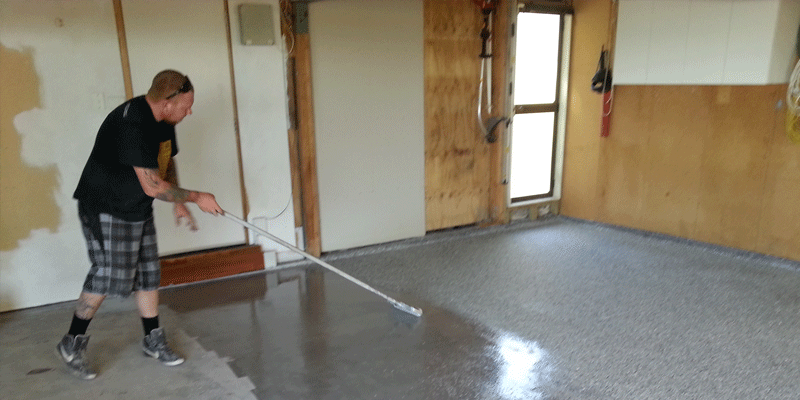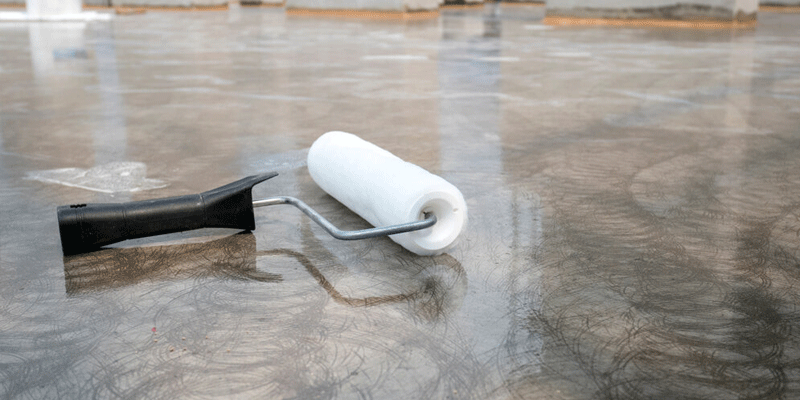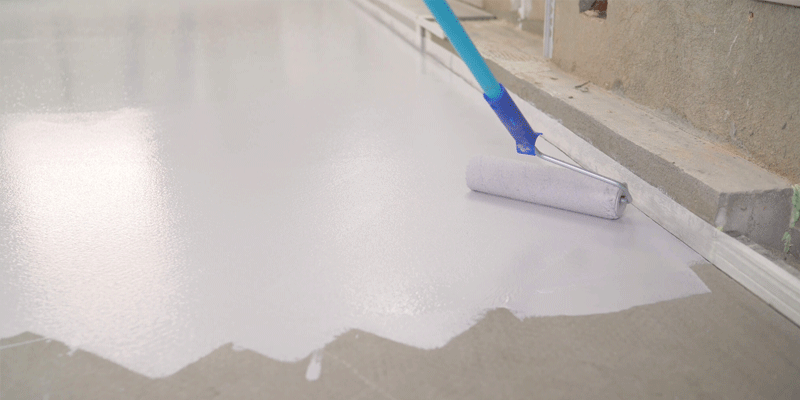Do you need a flooring material that is durable, easy to maintain, and resistant to stains, moisture damage, and impact? Epoxy flooring may be the perfect solution for you. Epoxy floors are a type of coating applied directly to your existing floor surface - typically concrete or wood - and can come in various colors and styles.
This article will cover the following topics related to epoxy floors:
- What are epoxy floors?
- The benefits of epoxy floors.
- How to care for epoxy floors.
- Common uses for epoxy floor coatings.
Table of Contents
What are Epoxy Floors?
Epoxy is a resin that is mixed with a hardener and then applied directly to your floor surface. Once it dries, it creates a strong, protective barrier that is resistant to stains, moisture, impact, and wear and tear. Epoxy flooring is typically used in commercial and industrial settings because it can withstand high traffic and heavy equipment use.
However, it can also be used in residential settings - especially in garages or basement areas where there is a lot of activity. Some of the common uses for epoxy floor coatings include:
Garage floors: Epoxy coatings are a great choice for garage floors, as they can protect against spills, stains, oil damage, and heavy traffic.
Workshops and craft rooms: These areas often see lots of wear and tear from tools and machinery, but an epoxy coating will provide a durable surface that is easy to clean and maintain.
Basements: An epoxy coating in your basement will add extra moisture protection to this area, which is especially important if you have water issues or live in a wet climate. In addition, it can also help with odor management - particularly if your basement tends to get musty.
Laundry rooms: Epoxy coatings are a good choice for laundry room floors, as they can resist moisture and staining from laundry detergents and other cleaning products.
Bathrooms: An epoxy coating in a bathroom can protect against water damage and staining - two common issues in this area of the home.
The Benefits of Epoxy Floors

There are many benefits to using epoxy floor coatings, including:
Durability: Epoxy floors are very durable and can last for many years with proper care. They are resistant to stains, spills, impact, and wear and tear - making them ideal for high-traffic areas.
Easy to maintain: Epoxy floors are easy to clean and require minimal maintenance. You can simply sweep or mop them to keep them looking their best.
Design flexibility: Epoxy floor coatings come in a variety of different colors and styles, so you can easily find one that suits your needs and taste.
Wide range of applications: Epoxy coatings are not just limited to floors - they can also be used on countertops, walls, and other surfaces where you need extra protection against water damage or staining.
Is Epoxy Right For Me?

If you are looking for a strong, durable flooring material that is easy to maintain and resistant to most types of damage, epoxy may be the perfect choice for your home or business. But how do you know if it is right for you? Here are a few things to consider:
What is your budget? Epoxy flooring is typically more expensive than other types of flooring, so it is important to know how much you are willing to spend.
What is the condition of your existing floor? If your floor is in good condition, epoxy may be a good option. However, if there are cracks or other damage, it may be best to repair these before applying an epoxy coating.
How much traffic does your floor get? If you have a high-traffic area, such as a garage or workshop, epoxy floors can withstand this type of wear and tear. But if you have a low-traffic area, such as a basement, you may not need epoxy's extra durability.
What is your design style? Epoxy floors come in various colors and styles, so you can easily find one that suits your taste.
DIY Epoxy Installations vs. Professional Services
If you choose to install an epoxy coating yourself, ensure that you follow the proper protocol and use the right tools. You will need to prepare your surface by cleaning it thoroughly, removing any debris or paint, and sanding if necessary.
It is also important to have the right type of epoxy for your installation project - this can vary based on factors such as temperature and humidity levels in your area, so be sure to consult with a professional if you are unsure which type of epoxy you should use.
Alternatively, if you want to ensure a high-quality installation that is done correctly, it may be best to hire a professional service provider. They will have the knowledge and experience needed to get the job done properly, and they will also have the necessary tools and materials.
If you are considering epoxy for your flooring needs, be sure to weigh the pros and cons to decide if it is right for you. These floors are known to be durable, easy to maintain, and stylish - making them a great choice for many different applications. Contacting a licensed professional is the best way to get started on your epoxy flooring project!

